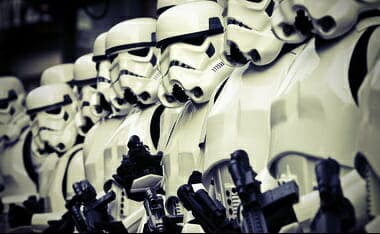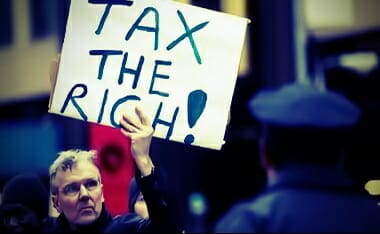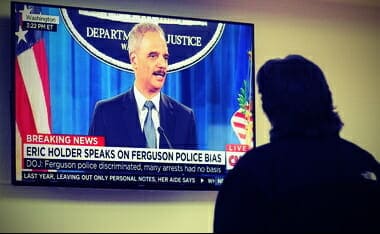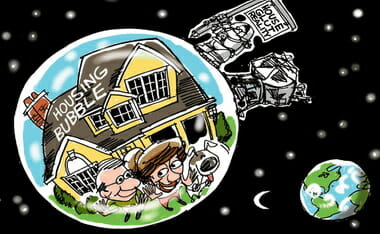Obama


Baltimore Police: from Exemplary to Racist In Just Two-Months
Here is a portion of the Investor’s Business Daily article:
Law And Order: Just two months ago, President Obama held up the Baltimore police force as a model of unbiased community policing. Now he’s investigating it for civil-rights violations. What’s changed?
In a March White House report on police reforms, Obama and his Task Force on 21st Century Policing praised Baltimore’s force and its black chief for “implementing national best practices for policies and training,” including “use of force” reforms. His task force even quoted Baltimore Police Commissioner Anthony Batts, who said he changed “outdated procedures” that “put officers at odds with the community.”
Yet now the Obama Justice Department is investigating the Baltimore police for a “pattern or practice of discriminating” against the black community in “arrests, traffic stops and other operations.” The federal probe is separate from an ongoing federal inquiry into the death of Freddie Gray, which focuses on the alleged misconduct of six Baltimore cops involved in his arrest, half of whom are black.
It’s absurd to think that black police officers under the direction of a black police chief are inherently biased against young black men. So why does Obama keep charging police bias where mixed-race juries weighing all the evidence conclude there is none?…
Apparently, a lot can change in two months in liberal la-la-land.

Obama’s Power Grab ~ Narcissism in the White House (Ben Shapiro)
Ben Shapiro takes a look at President Obama’s troubling grab for power through executive action on everything from immigration to foreign policy and even gun rights.

“Sir, I Will Not Obey That Order” ~ Firewall
If you were raised to despise the US military as a source or repression and injustice, and then, say, happened to get elected as its Commander-in-Chief — what would you do? As Bill Whittle shows in his latest FIREWALL, you don’t need to destroy the weapons and you don’t even need to fire the warriors. There’s another way…

Some 2012 Election Narratives About Romney Dismantled
Generosity = True Character!
BIDEN (Politico):
When the Obama campaign released past tax returns for Biden in 2008, it was revealed that the Bidens donated just $3,690 to charity over 10 years — an average of $369 a year.
OBAMA (WaPo):
♦ 2005: $77,315 to charity out of income of $1.66 million (4.6 percent)
♦ 2004: $2,500 out of $207,647 (1.2 percent)
♦ 2003: $3,400 out of $238,327 (1.4 percent)
♦ 2002: $1,050 out of $259,394 (0.4 percent)
The slightly longer video/audio of the below can be found here… I cut out the Benghazi commentary for this posting. This was originally uploaded to my MRCTV account in September 26, 2012:
From Video Description:
Larry Elder leads off with small talk about Hollywood’s silence on censorship, he plays SNL’s skit about undecided voters (video included)…. Then “The Sage” settles into his forte… stats. Quoting liberal sources he dissects Jonathan Karl’s ABC report (video included) and the general lunacy of the legacy media in stacking the deck against Romney. Long, but worth listening to.
For stories related to this report from Jonathan, see NewsBusters:
- ABC’s Karl Dissembles on Romney’s Tax Rate, But NBC Points Out He Pays Higher Percent Than Middle Class
- Nets Use Romney’s Taxes to Advance Obama’s False ‘Fairness’ Narrative
For more clear thinking like this from Larry Elder… I invite you to visit: http://www.larryelder.com/

Larry Elder Excoriates Leftism after Eric Holder’s Ferguson Report
Audio Description:
A magic 50-minutes with Larry Elder. He weaves the reality that the Left can only weave — and that is this:
▼ the bankruptcy of and the consequences of the “state” [statist ideology] that came to fruition in Ferguson in the micro via the MACRO application of failed leftist policies! (e.g., the welfare state, subsidizing fatherless-ness, and the funding of programs and pensions via unions and it’s city/state employes.
Larry elder is not on 790 any-longer. To get his shows one MUST currently go here: http://www.larryelder.com/ One can sign up as an Elderado and get his podcasts on iTunes.
➳ (A tip for Elderodoes): My Larry Elder podcasts stopped downloading recently in iTunes. So the first thing I did was I copied my past episodes into a seperate file (the copying and relocating took a while). Then I went into iTunes and deleted the Larry Elder podcast[s]. I then went to larryelder.com, got into my account, and refreshed the whole show podcasts for iTunes. I am now getting the new episodes.
Don’t forget about Larry’s blog: http://www.elderstatement.com/
A young man called into the show that same day. Larry Elder kept him on for a long time, but I truncated the call to reflect the main [muddled] thinking of the caller’s reasoning:

How We Got 5.6% Unemployment: Obfuscation (UPDATED)
The Big Lie: 5.6% Unemployment
…There’s another reason why the official rate is misleading. Say you’re an out-of-work engineer or healthcare worker or construction worker or retail manager: If you perform a minimum of one hour of work in a week and are paid at least $20 — maybe someone pays you to mow their lawn — you’re not officially counted as unemployed in the much-reported 5.6%. Few Americans know this.
Yet another figure of importance that doesn’t get much press: those working part time but wanting full-time work. If you have a degree in chemistry or math and are working 10 hours part time because it is all you can find — in other words, you are severely underemployed — the government doesn’t count you in the 5.6%. Few Americans know this.
There’s no other way to say this. The official unemployment rate, which cruelly overlooks the suffering of the long-term and often permanently unemployed as well as the depressingly underemployed, amounts to a Big Lie…


How The Democrats Caused The Financial Crisis: From Carter to Obama
How the democrats caused the financial crisis: starring Bill Clinton’s HUD secretary Andrew Cuomo. From Carter through Obama… banks didn’t want to be seen as racist, and ACORN w/ Obama pushing for more “affirmative action loans,” caused the Housing crisis.
Here is more from Moonbattery:
Old news, Democrats will scoff. But if you’re like me and lost the equivalent of years of work in the 2008 meltdown, you might still be interested in who was responsible. The truth is coming to light:
In a just-released book, former FCIC [Financial Crisis Inquiry Commission] member Peter Wallison says that a Democratic Congress worked with the commission’s Democratic chairman to whitewash the government’s central role in the mortgage debacle. The conspiracy helped protect some of the Democrats’ biggest stars from scrutiny and accountability while helping justify the biggest government takeover of the financial sector since the New Deal.
Wallison’s sobering, trenchantly written “Hidden in Plain Sight: What Really Caused the World’s Worst Financial Crisis and Why It Could Happen Again” reveals that the Democrat-led panel buried key data proving that the U.S. Department of Housing and Urban Development and other federal agencies pushed the housing market over the subprime cliff. The final FCIC report put the blame squarely on Wall Street.
In 2009, then-House Speaker Nancy Pelosi appointed her California pal Phil Angelides, a long-time Democrat operative, to lead the commission. The fix seemed to be in, and Wallison’s account of the inner workings of the 10-member body confirms it.
See IBD for details on how the phony $10 million probe came up with the predetermined verdict that free enterprise caused the collapse, which in reality was the result of the federal government inflicting Affirmative Action on the mortgage industry.
Here is a response from a friend on FaceBook:
- Happened almost 8 years into George W”s watch after controlling both Houses from 95-07. Hogwash and you know it!
My Response (edited):
…He (Bush and the Republicans) tried multiple times to change the now apparent issue…. 17-times to be exact:
2007 August: President Bush emphatically calls on Congress to pass a reform package for Fannie Mae and Freddie Mac, saying “first things first when it comes to those two institutions. Congress needs to get them reformed, get them streamlined, get them focused, and then I will consider other options.” (President George W. Bush, Press Conference, the White House, 8/9/07)
August: Senate Committee on Banking, Housing and Urban Affairs Chairman Christopher Dodd ignores the President’s warnings and calls on him to “immediately reconsider his ill-advised” position. (Eric Dash, “Fannie Mae’s Offer To Help Ease Credit Squeeze Is Rejected, As Critics Complain Of Opportunism,” The New York Times, 8/11/07)
[….]
September: Democrats in Congress forget their previous objections to GSE reforms, as Senator Dodd questions “why weren’t we doing more, why did we wait almost a year before there were any significant steps taken to try to deal with this problem? … I have a lot of questions about where was the administration over the last eight years.” (Dawn Kopecki, “Fannie Mae, Freddie ‘House Of Cards’ Prompts Takeover,” Bloomberg, 9/9/08)
Conservative-Republican ideals ~ [if] allowed to be implemented into law would have stopped this. And as Clinton clearly stated:
And as other video from committee meetings show, the first being Republicans bringing to light the issue:
As well as Democrats BLOCKING legislation that Republicans were trying to impose to stop the failure:

Foreign Policy: Even the Mainstream Media Called Obama’s Bluff
This comes from a great post over at Gateway Pundit, and has to do with a previous post regarding Canadian special forces engaging in ground battles with the Islamic State. Can you guess where? In Iraq. IN OTHER WORDS, our allies (as well as U.S. special forces) are on the ground in Iraq. so to hear this critique from the mainstream media is refreshing… but as I will note, it is indicative of the worldview of the Obama admin:
Richard Engel in the above video got it exactly right… Obama is looking at the world as how he “wishes” it could be. The Left has a view of economics, politics, and world affairs that especially since the “new Left” of the 60’s has displayed a Utopian proclivity. While the following audio is long (and you can choose to skip it), the insight into how this new Left thinks outside of the real world is required listening for the person interested in political science:
The President’s SOTU speech on foreign policy was soo bad that even “thrill up my leg” Matthews got it, Wolf Blitzer as well. But the conservative (who is typically more religious, by far) has a belief that ONLY God can bring perfection to earth. The leftist (typically more secular, by far) believes that mankind can impose perfection by edict (e.g., government legislation). This is why Democrats in a majority think man can control weather by legislation as well as calling millions of years of Nature (or God, or both) honing the male/female species into question. It is hubris that knows no bounds.
Here is some Utopian ideals defined via Conservapedia:
A utopia is a fictional society considered perfect by its proponent, but whose implementation in reality is unrealistic. The term, greek in origin, was first used by Thomas More, for its 1516 eponymous book, which describes a fictional state whose laws and organization are purportedly ideal. However, More’s intent was, at least in part, ironical, as some ambiguities in the text clearly show: the word “utopia” can mean both “good place” or “place that doesn’t exist”, and the narrator’s last name, Hythlodaeus, literally means “purveyor of nonsense”.
Utopian literature was, however, not created by More; it comes from the fusion of several archetypes, which can be found in classical literature and mythology, religion, and philosophy. The most important influences were the Greek accounts of voyages in faraway, fantastic lands (such as Hyperborea or Thule), the narration of a fall from a privileged and carefree condition in religion and mythology (such as Hesiod’s Golden Age, or the Genesis’ Fall from Eden), and philosophical inquiries about the nature of the perfect state, of which the most influential was undoubtedly Plato’s Republic. More and Plato disagree on what makes a perfect society: for example, while both societies are socialist, Plato advocates the communion of women and families, whereas More, a Christian, could not agree with that. This shows that utopias are, by their own nature, subjective and arbitrary, as different individuals will have different ideas on what constitutes a “good” society. A utopia, seen from a different point of view, can become a dystopia, that is, the description of a society which claims to be ideal but which ends up being a nightmare.
It is also interesting to note that utopias, while having some similarities with religious paradises, are incompatible with them: to be perfect, a paradise only needs an act of will by a deity; man only needs to gain access to the paradise through his actions on Earth (the exact requisites change from religion to religion: in the old Norse religion only valiant warriors fallen in battle could access the Valhalla, whereas the Christian Paradise is reserved for the righteous) and no special laws or measures are required to keep that paradise perfect. On the contrary, Utopia is a man-made paradise; it is perfect because it is carefully engineered to be so, and constant human intervention is required to prevent it from declining or falling.
This, according to professor of sociology Krishan Kumar, reflects two particular Christian views of human perfectibility: utopianists believe in the Pelagian view that man can make himself perfect through his actions, whereas the dystopian view reflects St. Augustine’s doctrine: God can be the only source of perfection, everything that man does is doomed to fail, and only faith can save man….

President WAS Going To Tout Yemen In SOTU Speech ~ OOPS!
Jihad Watch note who is backing the rebel takeover in Yemen:
The Shi’ite Houthi rebels have received weapons, money and training from Iran. So this represents a significant advance for Iran’s power and influence in the Middle East. What will Obama do in response to the firing on the embassy? Surrender, of course: preparations are already being made to evacuate it.
“Yemen’s President ‘has no control’ as Houthi rebels storm palace,” by Josh Levs, Nick Paton Walsh, and Laura Smith-Spark, CNN, January 20, 2015 (thanks to Pamela Geller):
(CNN)Shiite Houthi rebels overtook the presidential palace in Yemen’s capital, Sanaa, on Tuesday, marking what a government minister called “the completion of a coup.”
“The President has no control,” Minister of Information Nadia Sakkaf told CNN as clashes raged….
The Prez was gonna say something like this tonight: “…while supporting partners on the front lines, is one that we have successfully pursued in Yemen and Somalia for years.”: AND THIS via The Weekly Standard:
….So our strategy in Iraq and Syria is going to replicate “one that we have successfully pursued in Yemen and Somalia for years”? According to the president, Yemen and Somalia are examples of success? I’m no expert on either place, but I have the impression both are in pretty bad shape, have probably been getting worse, and that our government is pretty worried about the export of terrorism near and far from both….
And Gateway Pundit notes the Prez’s 2014 statements:
In September 2014, Obama bragged that Yemen was a foreign policy success story. On Tuesday Houthi rebels seized the Presidential palace in Sanaa, Yemen after a brief gun battle.

Canadian Spec-Ops Engage I.S. in Iraq (Plus: Breaking News)
Gateway Pundit points out that although Obama said in the above video he “ended the war in Iraq,” allied troops are fighting the Islamic State (IS) in Iraq.
Brig. Gen. Michael Rouleau says Special Forces came under direct attack and used sniper fire to neutralize the attackers.
A very interesting headline comes from Digital Journal, entitled: “Boots on the ground – Those putting ISIS on the defensive“
From Canadian special forces on the ground in Iraq to Kurdish fighters in Syria ISIS is slowly, but surely, being put on the defensive thanks to those brave men and women who are risking their lives in order to repel that groups murderous onslaughts.
[….]
Canadian special forces have recently become the first of any western military forces to engage this enemy on the ground after they came under attack from machine gun and mortar fire while out surveying the front-line firsthand. The act was dubbed a “defensive” one on the part of those Canadian forces. Nevertheless they are the first western force to engage in a firefight with ISIS. They, thankfully, sustained no injuries.
News of this came as the Syrian Kurds defending the town of Kobani continue to make gains in repelling the vicious attempt on the part of ISIS to crush them and ensure they don’t stand as a symbol of resistance to ISIS’s heartfelt efforts to establish their so-called caliphate. The Kurds have defied them and have stood up as an unwavering symbol of resistance having withstood everything ISIS could throw at them for an awe-inspiring 150 days. They have recently re-captured a strategic hill there which they can use to their advantage against an enemy who has already been repelled from most of the town.
Furthermore in Kobani U.S. air strikes have contributed to blunting ISIS’s ability to mount a prolonged siege by bombing its supply lines and also its positions around the town. Turkey has also assisted by allowing Peshmerga fighters from Iraq to cross through its territory to help reinforce those defending Kobani. All form of assistance to people who needed every bit of help they could get, and now the bravery they exhibited in their unwavering stand against this group is finally beginning to pay off….
There is BREAKING news that the leader of Islamic State, Abu Bakr al Baghdadi, has been killed. This was stated before… let’s hope it is true this time!


